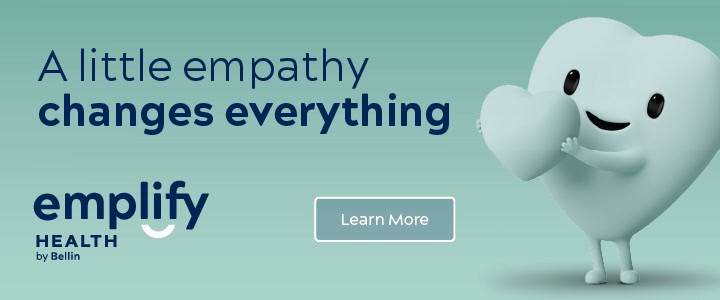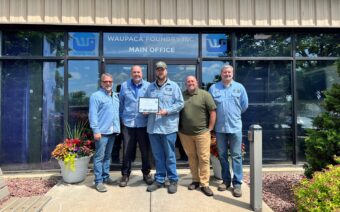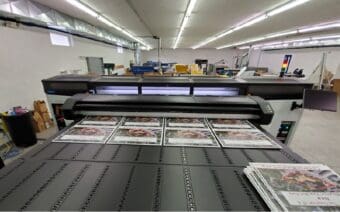
August 23, 2023
APPLETON – Employers continue to look for creative ways to fill their workforce needs and close skills gaps – especially so in the manufacturing industry.
VPI – an Appleton-based nonprofit – is doing its part to help close those gaps as it again hosts Nuts, Bolts, & Thingamajigs (NBT) Foundation Inclusion Manufacturing Camp, which aims to fill vacancies in manufacturing by training an untapped resource of potential workers – individuals with disabilities.
Allie Weiher, marketing & development manager for VPI, said the organization’s story dates back to 1956, when families of individuals with disabilities and local manufacturers knew two things – individuals with disabilities were ready and capable to enter the workforce, and there was an overwhelming need for contract packaging services in the Fox Cities area.
She said VPI was established as a solution to meet both needs.
Weiher said individuals with disabilities are available, ready to enter the workforce and capable of making an impact – suggesting a necessary paradigm shift in employment practices.
A bit of statistics
In March 2022 – according to the U.S. Bureau of Labor Statistics – the labor force participation rate for individuals with disabilities was 37.8%, with an unemployment rate of 9.8% – while the labor force participation rate for individuals without a disability was 77.2% with an unemployment rate of 3.6%.
According to a NBT Program Impact Study completed in 2020, the summer manufacturing camps have increased awareness of career options and jobs available in manufacturing, including those in their local community by 82% at the end of the camp.
VPI hosted the Northeast Wisconsin area’s first NBT inclusion camp last year.
Megan Gerl, vice president of community programs at VPI, said the goal of these camps – now in its second year at VPI, is to help train and prepare young adults with disabilities for employment in manufacturing, while also showing local employers this group of individuals is a viable option to meet their workforce demands.
“VPI is all about promoting inclusion and innovative workforce solutions to our Fox Cities community,” she said. “The partnership with NBT and the inclusion camp is a great way to show both individuals with disabilities and employers that the individuals we work with can make a significant impact on their workforce needs and increase inclusion in our community.”
NBT camp
Created by the NBT Foundation, the four-week Inclusion Manufacturing Camp is funded by Mitsubishi Electric and Nestle and is designed to train and prepare young adults with disabilities for jobs in manufacturing.
Gerl said as an area heavily focused on manufacturing with workforce needs, “we have a group of individuals with varying abilities who are capable to meet that demand.”
“There’s a lot of times in the past, people with disabilities were maybe pushed more toward part-time service sector jobs that aren’t so high pace,” she said. “I think the camp is great for the manufacturers, but it’s also great for the individuals we’re working with. These manufacturing jobs are great and give our campers the ability to try out something different they might not have the opportunity to go in and try.”
Gerl said during the camp, participants have the opportunity to tour other area manufacturers, “so they’re able to see all the different types of manufacturing we have.”
“This can help with some of that career planning to address those questions about what do I do after high school?” she said. “Hopefully, we’re getting them on a career track that’s going to help them with stability long-term.”

Megan Gerl
During the camp, Gerl said VPI staff facilitate interactive activities designed to improve soft skills, help individuals gain confidence in their abilities and explore careers in various manufacturing environments.
Participants, she said, will also participate in paid work experience on a variety of VPI production lines to develop the hard skills needed for these manufacturing jobs.
Ed Dernulc, the director of the Foundation at Fabricators and Manufacturing Association, said when he talks folks throughout the industry, the No. 1 concern brought up is human resources.
“The No. 1 concern isn’t about the economy, it’s not about the price or materials – it’s about human resources,” he said. “If human resources is your No. 1 issue, why would you exclude any sector of society?”
This program is important, Dernulc said, because it’s helping solve a problem the manufacturing industry has.
“We need to be far more expansive, and more inclusive – we need to think outside of the box,” he said.
Dernulc said tapping into this underutilized population will also affect an organization’s culture as they look at their human resources issues.
“What do I mean by that?,” he said. “You’re not going to interview me the same way you’re going to interview one of these (campers). I’m looking at you with eye contact – (they may not be able) to do that. They may give you one- or two-word answers, I can obviously expand mine – but that doesn’t disqualify them. You need to change your mindset from a culture standpoint in your organization, not the other way. That’s why (this camp) is so important – it is solving a problem, it’s being inclusive and it’s changing for the better the culture of an organization.”
VPI, Dernulc said, is a great partner in the mission NBT is trying to accomplish.
“VPI is great… and the camp adheres to our mission, which is to nurture and engage that next generation of skilled labor,” he said. “This is an immediate solution. This is giving them training, both from a soft skill and a hard skills basis. But it gets them into the factories in the area our members need. So, that’s why it’s great for us because we’re providing the service our members are asking for, and making an impact.”
A bit more on how it works
The camp – which has 15 students taking part this year, up from last year’s 10 – itself is split into two areas of focus – one hour of in-classroom learning and two hours of on-the-floor, hands-on learning.
Soft skills instructor Monica Allaback said VPI connects with local high schools looking for interested individuals, but sign up is also available online through VPI’s website (vpiwi.org).
“We try to talk about it with anybody and everybody we can – it’s an amazing opportunity,” she said.
Allaback said what is great about the program is it allows campers to try out a variety of different jobs and tasks on the floor and through job shadow opportunities, coupled with time in the classroom.
“We work on six big soft skills, which are communication, networking, problem solving, critical thinking, attitude and enthusiasm and professionalism,” she said. “I try to make it fun. I do a lot of activities that demonstrate what I’m trying to teach, but also in a fun way.”

Monica Allaback said campers have an opportunity to try out all sorts of tasks at VPI during the four-week camp. Rachel Sankey Photo
Allaback said one of the lessons focuses on resilience in the workplace.
“Everybody makes mistakes in the workplace,” she said. “We throw raw eggs at a wall and we try to hit the target, but then we also throw a rubber ball. And we ask them, ‘do you want to be somebody who falls apart when you hit a bump or do you want to be somebody who bounces back?’”
Allaback said many people don’t realize how much those soft skills and social and emotional learning can make a difference between someone who’s not successful.
“I talk about how to start a conversation with somebody because when you’re sitting in the breakroom at lunch, you don’t know the person next to you, so talking about how to start a conversation?” she said. “I talk about how to give an apology. I talk about how to accept feedback from your boss. It seems obvious to me, but a lot of these skills aren’t taught anywhere. So, we have conversations about that. And I also connect it to their everyday lives, which makes it closer to home and easier to connect with.”
As a youth employment specialist at VPI, Alex Browne said he’s responsible for helping set up the lines, placing campers and coaches where they need to go and making sure things are working well.
“I also go out and set up the job shadows (at different manufacturers throughout the area) – we do four job shadows during the camp,” he said.
Browne said part of his job is making sure campers are learning tasks correctly and safely.
“It’s about learning that repetitively and getting it right every single time,” he said.
Browne said his favorite part of the program is watching the growth potential of the campers.
“I enjoy watching the students working together,” he said. “A lot of these students come from different backgrounds and with different abilities, and they have to come together and work with each other in a short amount of time.”
At the end of the four weeks, depending on their level of experience, Allaback said some of the campers are offered positions at area companies and others continue to work at VPI.
“It’s a good opportunity for somebody who’s never been exposed to manufacturing to be able… (decide if) it’s something they want to do – that’s the whole purpose of it,” she said.
Allaback said the NBT Foundation’s four-week Inclusion Manufacturing Camp at VPI is important because “everybody can work.”
“And everybody should have an opportunity to be a productive member of society however they can,” she said.
 Getting modern tools into the hands of today’s learners
Getting modern tools into the hands of today’s learners








